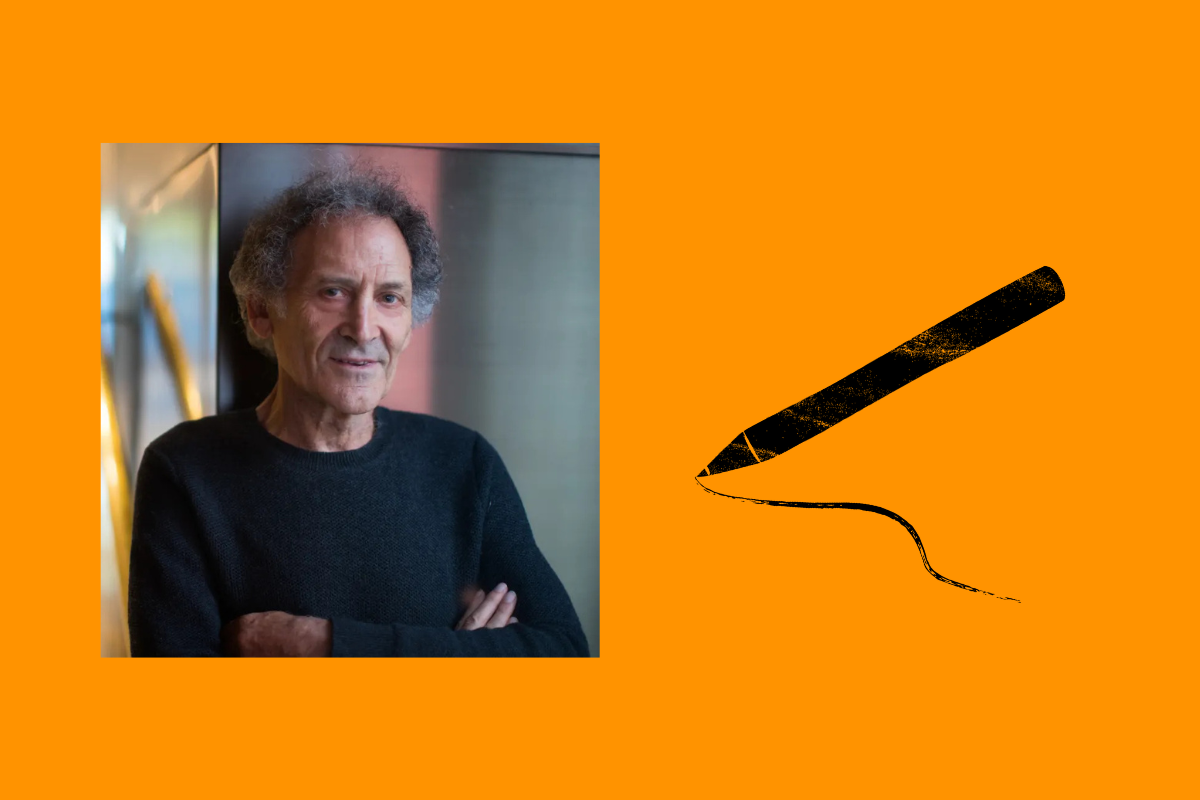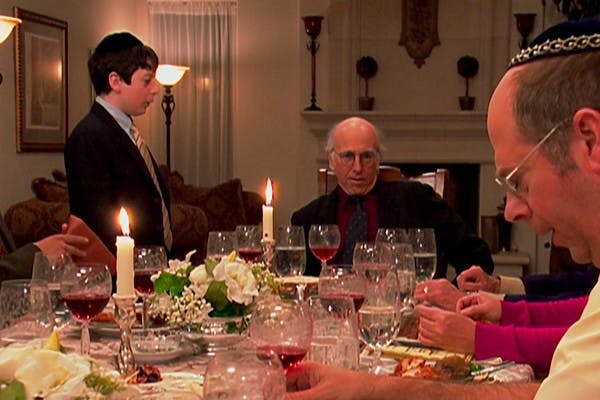Published: 6 June 2023
Last updated: 28 March 2024
AVIVA LOWY takes a chance on a book about lotteries, explores modern romance rules, delves into identity and learns Jewish Italian cooking.
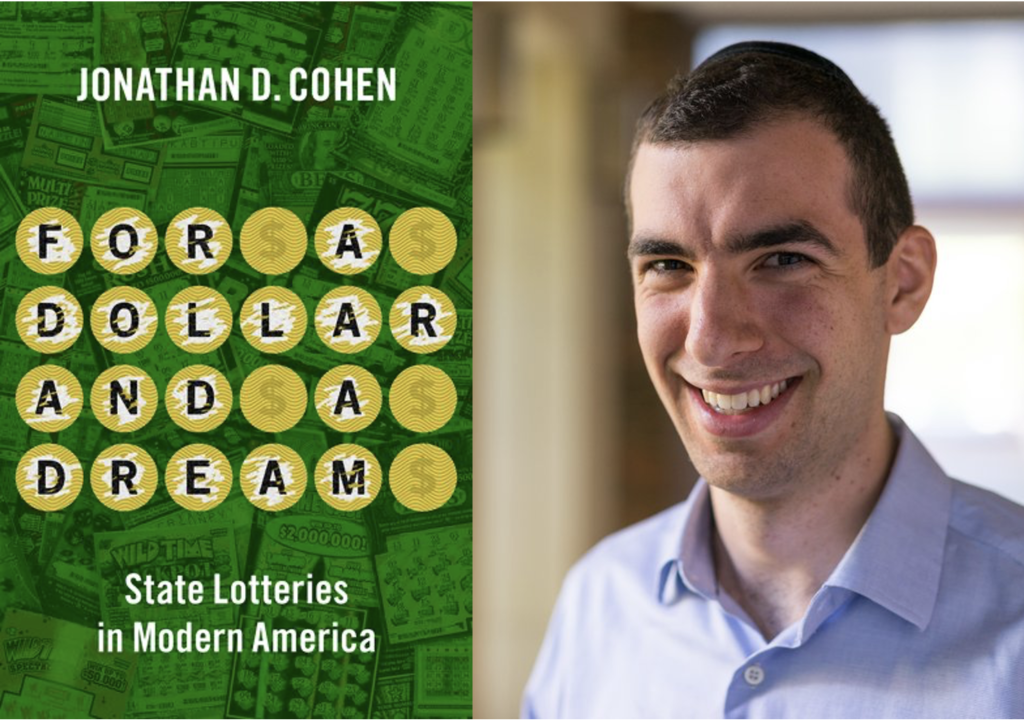
For a Dollar and a Dream: state lotteries in modern America - Jonathan D Cohen (Oxford University Press)
Every year, Americans spend more on lottery tickets than on books, concert tickets, movies and TV streaming services combined. In 2020, sales from lottery tickets totalled more than $90 billion.
According to historian Jonathan Cohen, lotteries are Robin Hood in reverse. “They take relatively more from those with lower incomes. The frequency of play and the amount bet by those who do gamble is particularly high among lower-income, non-white, and less-educated Americans,” he says.
In this book, Cohen traces the history of US lotteries from the early days of illegal gambling and numbers games, to the individual states stepping in to use the model for funding government works. They could see money was being made and they wanted in on the action. While the states believed lottery revenue had the potential to replace the need for taxes, their grand ambitions for this golden goose were whittled away over time. Today, taxes remain, with lotteries providing only a small amount of the public purse.
Unfortunately, during periods of economic decline, as incomes fall and unemployment rates rise, lottery sales increase. At the start of his book, Cohen introduces us to Leo McCord, a 70-year-old black man from Illinois who has played the lottery every day for almost 50 years. His story is an example of the typical player. When he lost his taxi-driving job and fell on hard times, his desperation resulted in him spending more on lottery tickets, believing them to be his only hope.
(As a taster, you can hear Cohen discuss his book on the podcast 99 Percent Invisible)
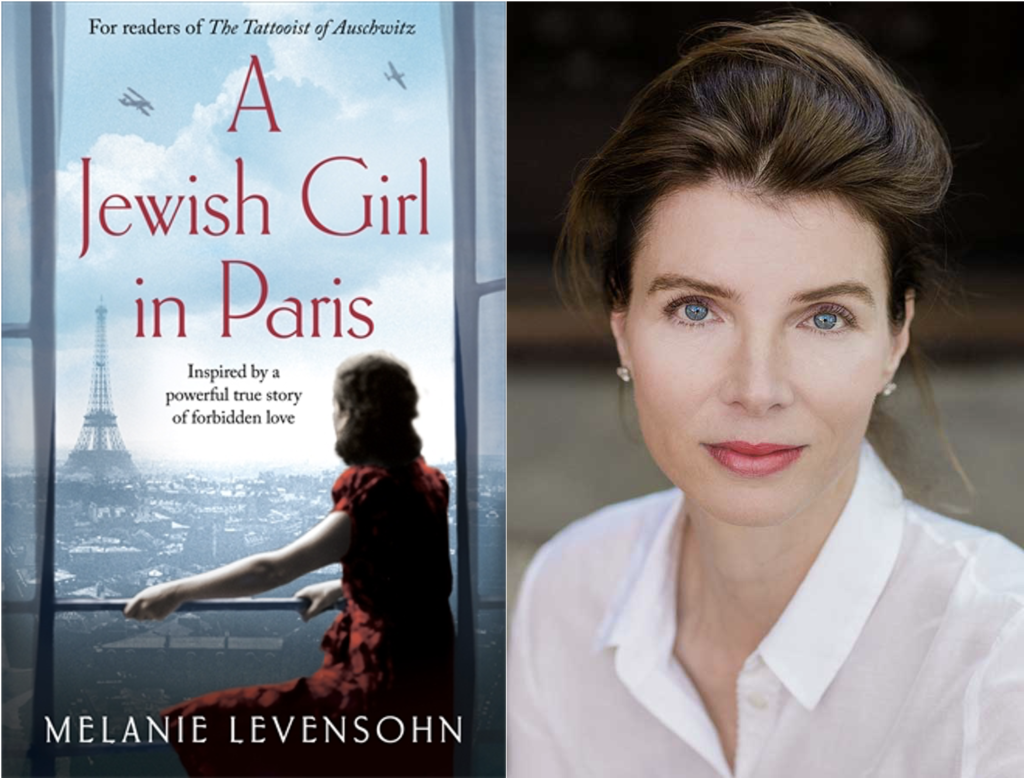
A Jewish Girl in Paris - Melanie Levensohn (Pan Macmillan)
What’s in a name? In the case of author Melanie Levensohn, the answer is: inspiration for a novel.
Discovering that she shared her name with one of her husband’s cousins who had been a victim of the Nazi atrocities, “caused an upheaval in our family. Melanie’s fate and our identical name captivated me completely. I felt an urgent need to create a special memorial for her,” Levensohn says.
Fortunately for Levensohn, she had a trove of historical documents to kickstart her research. This material had been collected by Melanie’s half-sister, who learnt of her sibling at their father’s death bed when he made her promise to find out about his first daughter’s fate. If that doesn’t sound like being handed the perfect set-up for a novel, I don’t know what is.
The book intertwines two stories, that of Judith, a Jewish girl living in 1940s Paris who falls in love with a handsome young man who is the son of Nazi sympathisers, and a French woman, Beatrice, who is based in Washington in 2006, helping Judith’s half-sister to find out what happened to her.
While Judith and Beatrice are closely based on the two Melanies - for example, Beatrice works for the World Bank just as author Melanie did - the book is really two fictional love stories which sometimes veer a little too close to Mills and Boon territory. If you can get over lines such as, “his words pierced me like a sweet arrow” or “his green eyes shone like the water of a mountain lake”, then it’s a light, engaging read with some interesting plot twists.
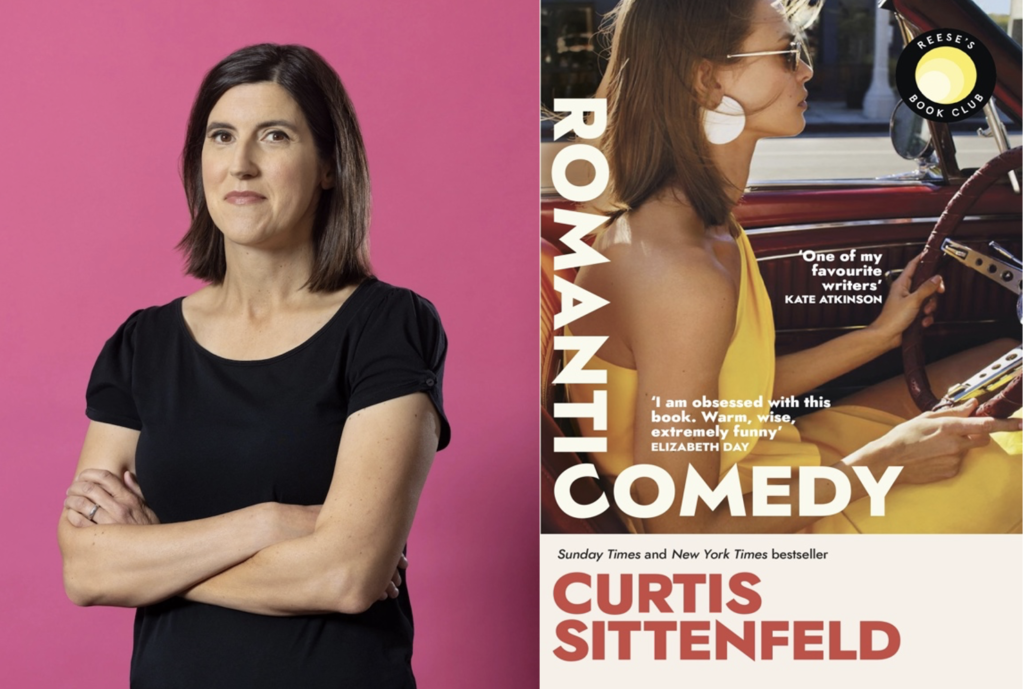
Romantic Comedy - Curtis Sittenfeld (Penguin Random House)
Sally Milz has her dream job: She’s a scriptwriter on the long-running TV comedy show, The Night Owls (based on the popular and enduring Saturday Night Live);she has warm, witty colleagues who are also great friends; and she gets to work with a never-ending stream of celebrity guest stars.
But Sally is furious to learn that a gorgeous, world-famous movie star, Annabel Lilly, is dating her office buddy Danny Horst - “a schlub”. Annabel is way out of his league. While she concedes that Danny is nice enough and talented, he’s just a TV writer. A male version of herself. And therein lies the rub.
While men can date up, the same doesn’t apply for women. An average woman couldn’t attract a stellar man. Sally coins this the “Danny Horst Rule” and writes a skit about it for the show. But does the rule really hold? When Sally feels an attraction to the handsome and charming guest host, singer Noah Brewester, and the sentiment seems to be reciprocated, her understanding of the known dating universe is upended. Can a smart, independent, cynical woman ever be the star of her own romance?
Ironically, in one of her conversations with Noah, Sally confides in him that her ambition is to write, “non-condescending, ragingly feminist screenplays for romantic comedies”. Of course, this is exactly what Sittenfeld has done with this novel, albeit in book form. Perhaps it will be turned into a film.
Sittenfeld, esteemed author of American Wife and Rodham, would make a fine successor to scriptwriters Nora and Delia Ephron. She has already proven her romantic comedy chops with Eligible, a modern reworking of Jane Austen’s Pride and Prejudice.
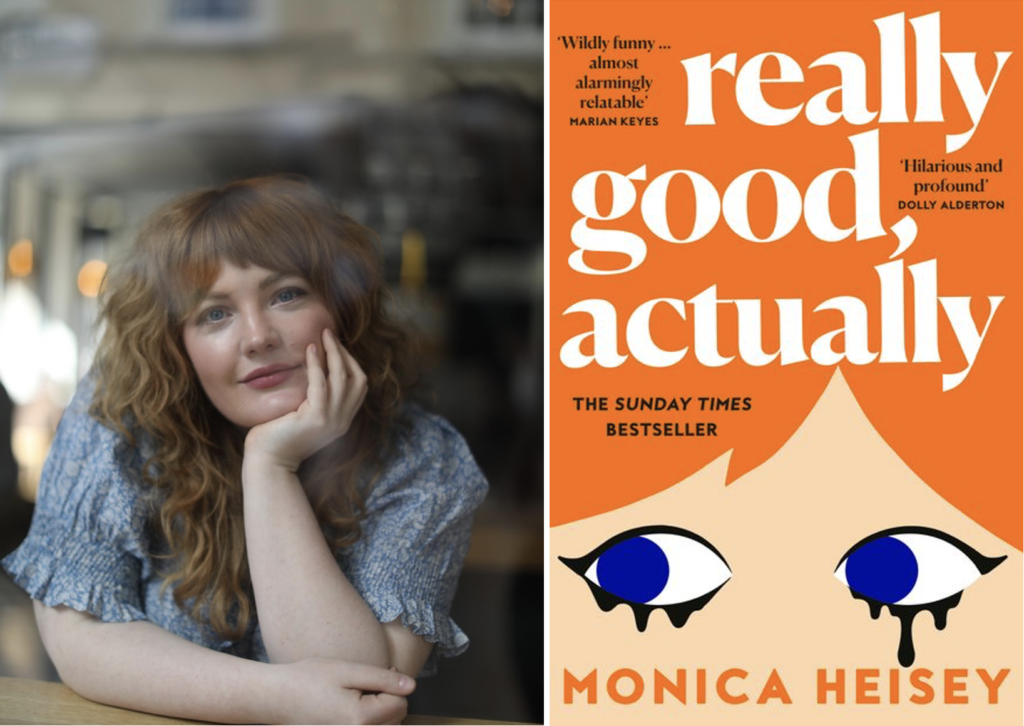
Really Good, Actually - Monica Heisey (HarperCollins)
Maggie has just broken up with Jon, her husband of two years, but boyfriend for almost a decade. When a concerned acquaintance asks her how she’s going, her response is, “Really good, actually”, but this is far from the truth. Maggie is heartbroken and coming apart at the seams.
Canadian writer and comedian Monica Heisey has based this novel on her own break up which left her, at 28, a “young divorcee”. She explores the novelty of being at the end of a marriage in your late 20s just when all those around you seem to be embarking on their own marital commitments.
Maggie tries to navigate her way out of her predicament with a frenzy of online dating, online shopping, and online meal delivery - though this is almost exclusively late-night hamburgers. She is living her life on Tinder, Instagram and Facebook. No wonder she opines, “intimacy is a sham”. Her small circle of group chat friends try to provide support, but her cynicism and sarcasm push them away.
Heisey is well established as a satirical writer and worked on the Emmy-award winning comedy series Schitt’s Creek. A great pedigree, indeed.
Much of this book is crammed with comic one-liners, such as her likening of a bad relationship to an ill-fitting blouse: very difficult to take off. But there are too many lists - “things that made me cry”, “google searches”, “birthday wishes I did not want to receive”, “my life’s top shames” - which may work as throw away lines on TV but feel lazy on the page.
Read it for the laughs, but not for emotional involvement.
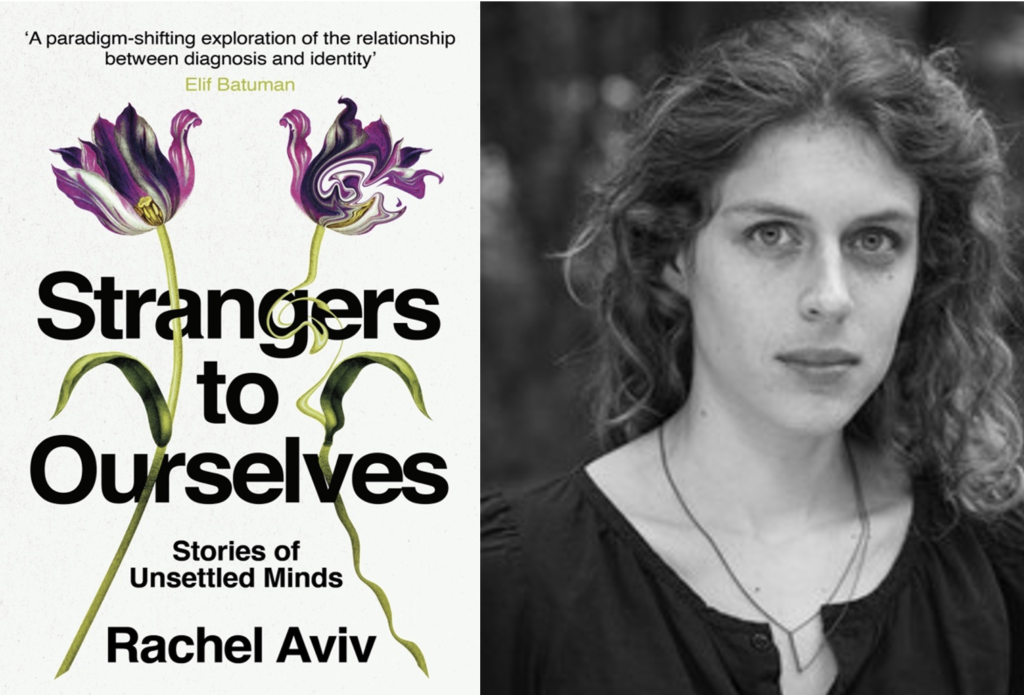
Strangers to Ourselves: Stories of unsettled minds - Rachel Aviv (Random House)
At the age of six, Rachel Aviv refused to eat or drink for two days, an idea she got from Yom Kippur, which had been observed a week earlier. “I realised it was possible to say ‘no’ to food”, she writes in the prologue of Strangers to Ourselves. When she was hospitalised shortly after, she became one of the youngest people to be diagnosed with anorexia.
Aviv generously opens up about her history with mental illness in a prelude to the extensive profiles of four people - Ray, Bapu, Naomi and Laura - which tell their experiences of the psychiatric intervention they received, set against their personal stories and belief systems. As one blurb on the book’s cover notes, this is “an exploration of the relationship between diagnosis and identity”.
A staff writer at The New Yorker whose focus is medicine, education and criminal justice, Aviv won a National Magazine Award for profile writing in 2022. It’s therefore apt that she chooses this in-depth case history approach. Her subjects are able to eloquently discuss the different psychiatric explanations they have been given for their mental suffering and to articulate a framework for their own troubled minds. For example, Bapu sees her struggles in terms of striving for religious enlightenment. Naomi, a black woman, talks of the racism that constrains and threatens her family.
Aviv reviews the changing trends in therapy and drug regimes and suggests that no treatment can be successful without considering the particular political, historical and social settings of the individual. Each person is so much more than their diagnosed illness.
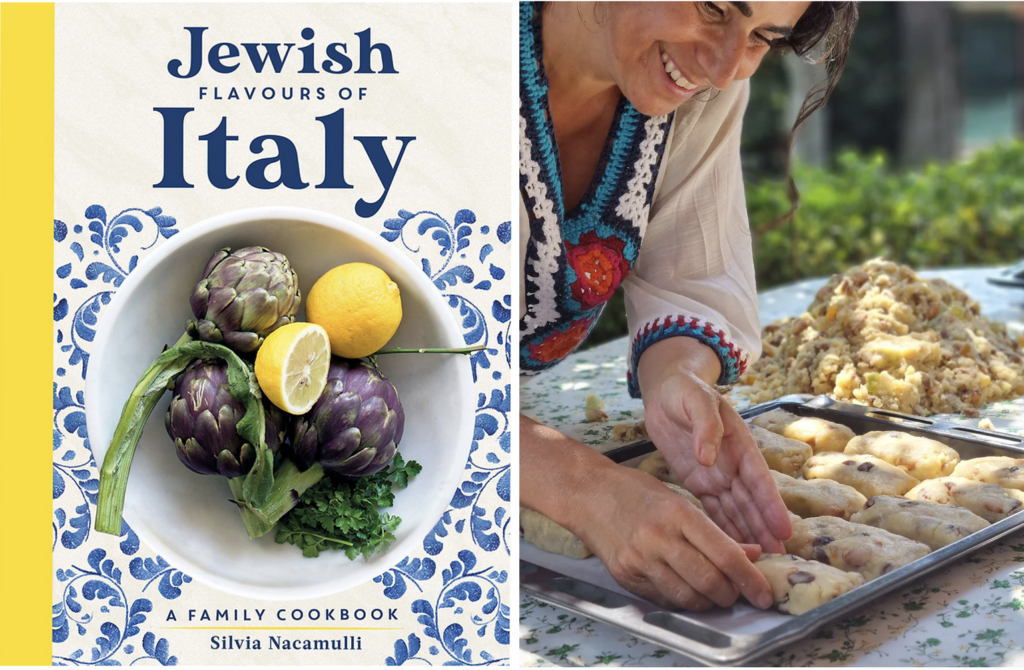
Jewish Flavours of Italy: A family cookbook - Silvia Nacamulli (Green Bean Books)
“Jews have been living in Italy for over 2,000 years and Rome is home to the oldest continuous Jewish community in the Western world”, writes Silvia Nacamulli in the introduction to her book, Jewish Flavours of Italy. As an Italian Jew herself, she claims to have the “double whammy” of enjoying the best of two cultures which are not shy about their love of food.
Now based in London, Nacamulli lectures on the history of Italian Jewish cuisine, runs cookery courses in Tuscany and Umbria, does catering and contributes recipes to The Jewish Chronicle. It’s a surprising career for someone who studied political science at the Hebrew University in Jerusalem and completed a master's at the London School of Economics. But this background allows Nacamulli to bring a greater depth to her writing and makes this publication more than just a cookbook.
Jewish Flavours provides an insight into the history of the Jews in Italy and the different Jewish communities around the country. The author notes that the Jews of Italy are neither Sephardi nor Ashkenazi: they are Italkim who arrived before the distinction between the European and the Middle Eastern Jews was made in the Middle Ages, and they maintain their own distinct prayer format which is still practiced today.
There is also a personal history of both her father’s and mother’s families, an explanation of the rules of kashrut, information on shabbat and the various Jewish festivals with menu ideas accompanying each, and a list of helpful cooking tips and kitchen notes. And of course, the delicious recipes!


